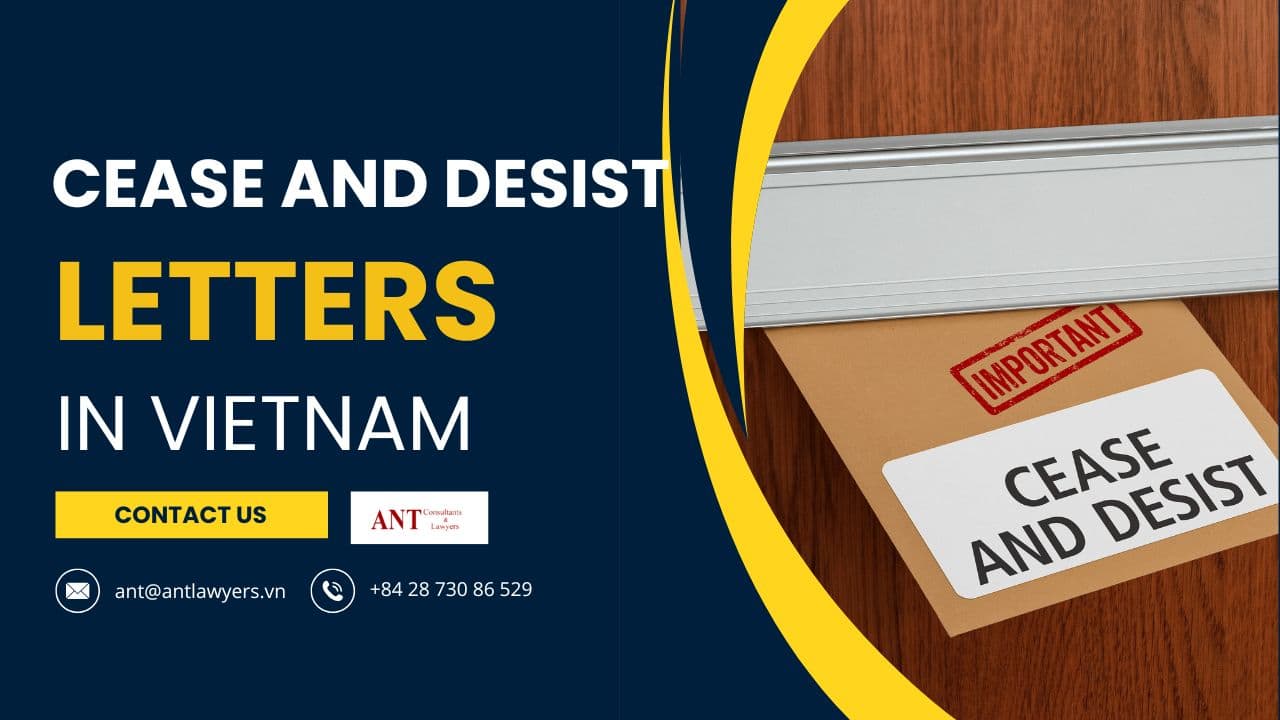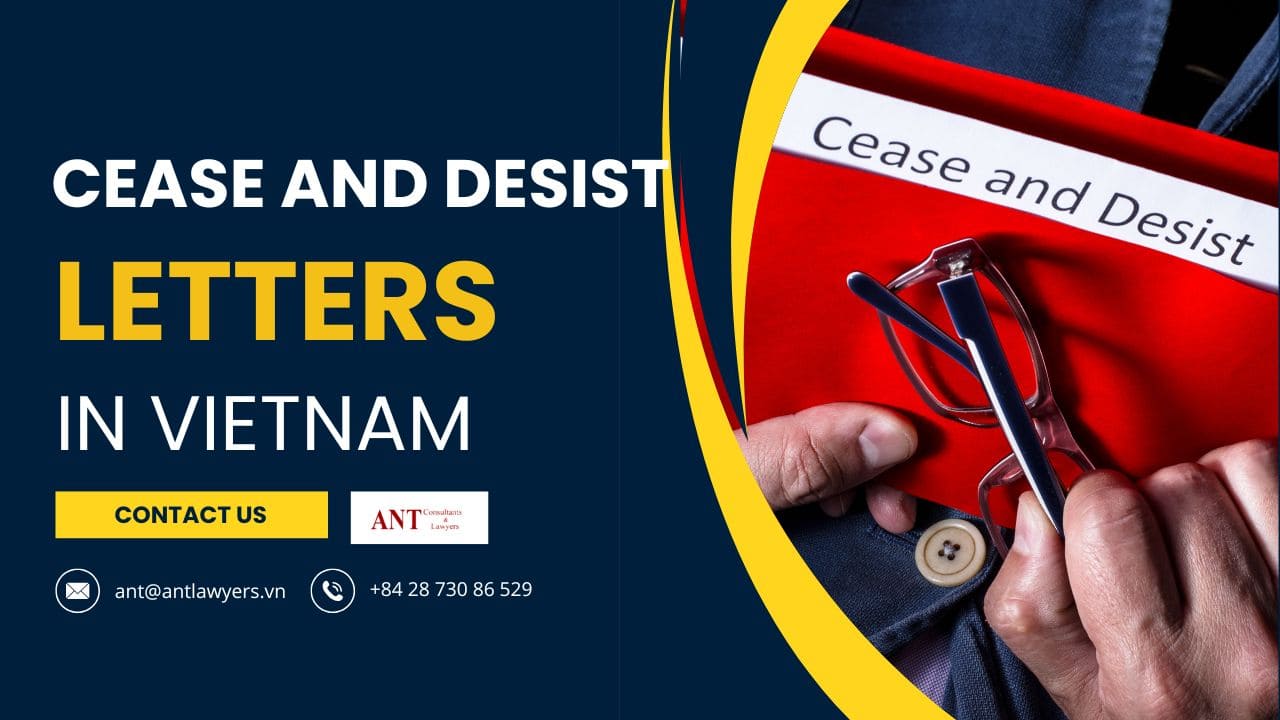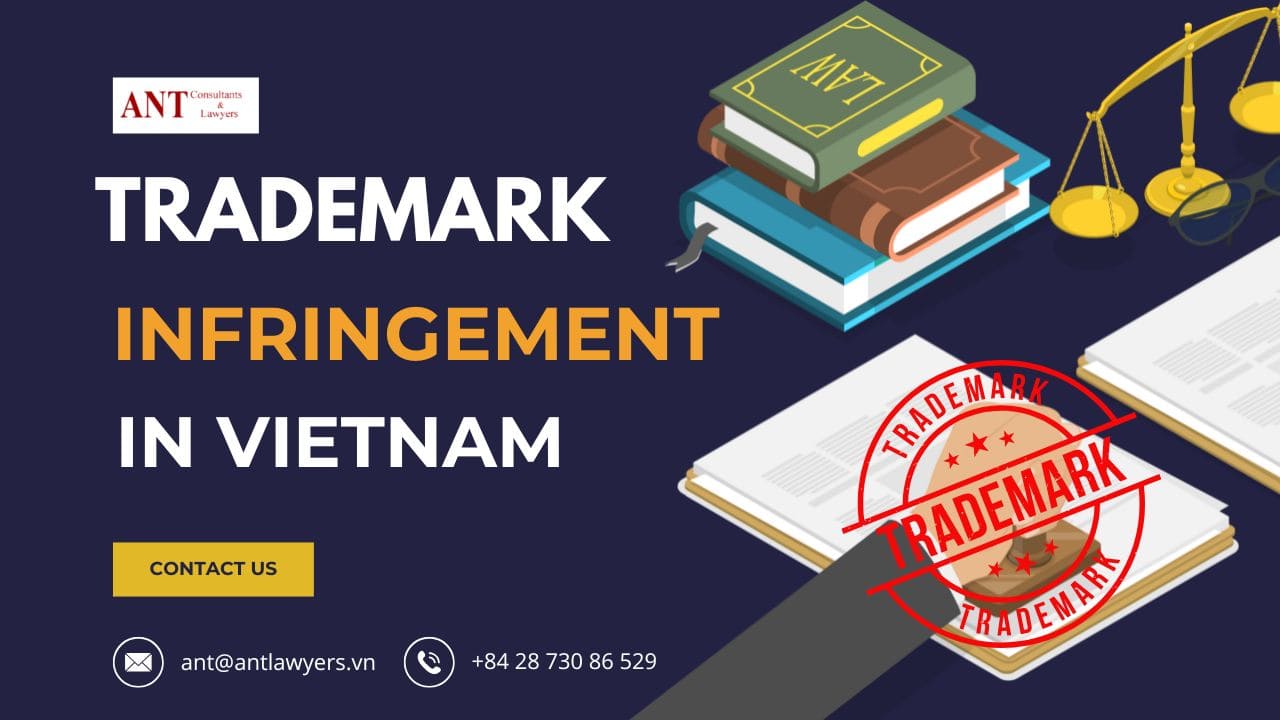10 Critical Insights Into Cease and Desist Letters in Vietnam That Could Save Your Business


Cease and Desist Letters in Vietnam
Imagine the situation you’re running a successful business in Vietnam, and everything seems to be going well. Suddenly, you discover that your intellectual property is being exploited, your business reputation is under attack, or your contract terms are blatantly ignored.
The frustration, the anger, and the sense of betrayal can be overwhelming. As a foreigner navigating a new legal and cultural environment, you might feel powerless. But there is a powerful tool at your disposal: cease and desist letters in Vietnam. Understanding how to wield this tool can mean the difference between protecting your business or watching it crumble.


In here, we explore the intricacies of cease and desist letters in Vietnam, providing foreigners with a detailed roadmap to safeguard their rights. Whether you’re dealing with copyright infringements, defamation, or breaches of contract, this guide will empower you with actionable insights to take control of the situation.
The Power of Cease and Desist Letters in Vietnam
A cease and desist letter is more than just a legal document; it’s a formal assertion of your rights. In Vietnam, where the legal landscape can be daunting for foreigners, cease and desist letters offer a strategic, non-litigious way to address disputes.
What Makes Cease and Desist Letters in Vietnam Unique?
Cease and desist letters in Vietnam are not explicitly defined in law. Instead, they function as a pre-litigation tool to demand that the offending party stop infringing activities. The informal yet impactful nature of these letters makes them a preferred choice for resolving disputes before resorting to administrative complaints or lawsuits.
Key reasons why cease and desist letters in Vietnam are impactful:
1.Cultural Nuances: The directness of a legal notice carries weight in Vietnam, often prompting compliance to avoid public disputes.
2.Efficiency: These letters can save time and resources compared to formal legal actions.
3.Legal Leverage: A well-drafted letter demonstrates seriousness and readiness for escalation, compelling the recipient to act.
Top Scenarios Where Cease and Desist Letters in Vietnam Are Used
Foreign businesses in Vietnam commonly face scenarios where cease and desist letters become indispensable. Let’s dive into the most frequent cases:
1.Intellectual Property Infringement
- Vietnam has strengthened its IP laws, but enforcement can be challenging. Counterfeit goods, unauthorized use of trademarks, and copyright violations are rampant.
- Example: A foreign fashion brand discovers counterfeit versions of its products in local markets. A cease and desist letter can serve as the first step to curbing such activities.
2.Defamation and Reputation Damage
- Social media and online platforms are significant in Vietnam. False reviews or defamatory posts can harm businesses.
- Example: A hotel chain receives a barrage of negative fake reviews from a competitor. A cease and desist letter can demand the removal of such content.
3.Breach of Contract
- Contracts in Vietnam may not always be honored, especially in complex business arrangements.
- Example: A foreign investor finds that a local partner has diverted funds. A cease and desist letter can formally demand compliance with the contract.
- Employers may face challenges with employees violating non-compete clauses or confidentiality agreements.
- Example: A former employee starts a competing business using trade secrets. A cease and desist letter can demand cessation of these activities.
Drafting an Effective Cease and Desist Letter in Vietnam
Creating an effective cease and desist letter in Vietnam requires a nuanced understanding of the legal framework and cultural considerations. Here’s a step-by-step guide:
1. Understand the Legal Basis
- Clearly identify the laws or contract clauses being violated. For instance:
- Intellectual Property Law (e.g., copyright, trademark protection).
- Civil Code provisions for defamation or breach of contract.
2. State the Facts Clearly
- Detail the infringing activity with evidence. For example, attach screenshots, photos, or signed agreements to substantiate your claim.
3. Demand Specific Actions
- Outline the exact steps the recipient must take to comply. Example:
- “Cease all production and sale of counterfeit products bearing the trademark [Brand Name].”
- “Remove defamatory posts within 7 days of receiving this letter.”
4. Set a Deadline
- Specify a reasonable timeframe for compliance, typically 7-14 days.
5. Outline Consequences of Non-Compliance
- Warn of further action, such as legal proceedings or administrative complaints, if demands are not met.
6. Ensure Proper Delivery
- Send the letter via registered mail or hand-delivery with acknowledgment to ensure proof of receipt.
The Psychological Impact of Cease and Desist Letters in Vietnam
One overlooked aspect of cease and desist letters in Vietnam is their psychological impact. In a culture where face-saving is important, the threat of legal action can motivate parties to settle disputes quietly. However, the tone of the letter must balance firmness with professionalism to avoid escalating tensions.
Challenges and Pitfalls to Avoid
While cease and desist letters in Vietnam are effective, they are not without challenges:
- Non-Compliance: Some parties may ignore the letter, requiring escalation to legal action.
- Backlash: Aggressively worded letters can damage relationships or provoke retaliatory actions.
- Cultural Missteps: Overly direct or confrontational language may not resonate in Vietnam’s business culture.
Legal Alternatives to Cease and Desist Letters in Vietnam
If a cease and desist letter fails, several legal avenues are available:
- Administrative Complaints: File complaints with agencies like the Ministry of Science and Technology (for IP issues).
- Civil Lawsuits: Pursue litigation in Vietnamese courts.
- Mediation or Arbitration: Use these mechanisms if stipulated in a contract.
Case Study: A Foreign Startup’s Victory with Cease and Desist Letters in Vietnam
A foreign tech startup operating in Vietnam faced a serious challenge when a local competitor cloned its app and launched a competing service. Instead of immediately resorting to litigation, the startup’s legal team issued a well-drafted cease and desist letter. The letter:
- Cited specific violations of Vietnam’s Intellectual Property Law.
- Included evidence of the infringement.
- Demanded the immediate cessation of app operations.
- Warned of legal consequences.
The competitor complied within the 14-day deadline, saving the startup significant legal costs and preserving its market position.
Final Thoughts: Why Consider Cease and Desist Letters in Vietnam
For foreigners doing business in Vietnam, understanding the power of cease and desist letters in Vietnam is essential. These letters are not just a legal tool but a strategic weapon to protect your rights, build credibility, and navigate the complexities of Vietnam’s legal and cultural landscape.
Whether you’re facing intellectual property theft, defamation, or contractual breaches, taking swift and decisive action through a cease and desist letter can safeguard your business interests. But remember, the key to success lies in precision, professionalism, and cultural awareness.
About ANT Lawyers, a Law Firm in Vietnam
We help clients overcome cultural barriers and achieve their strategic and financial outcomes, while ensuring the best interest rate protection, risk mitigation and regulatory compliance. ANT lawyers has lawyers in Ho Chi Minh city, Hanoi, and Danang, and will help customers in doing business in Vietnam.


What Copyright Infringements Are and How Copyright Infringement Lawyers in Vietnam Can Help?


Trademark Infringement Lawyers in Vietnam: 7 Crucial Reasons to Act Fast on Self-Protection
How to Protect Business Secrets through Non-Disclosure Agreement (NDA)
5 Critical Ways IP Infringement Lawyers Protect Your Rights
Intellectual Property Litigation Lawyers in Vietnam: Navigating Legal Disputes in IP Rights?
How ANT Lawyers Could Help Your Business?
You could learn more about ANT Lawyers IP Practice or contact our IP attorneys in Vietnam for advice via email ant@antlawyers.vn or call our office at (+84) 24 730 86 529
Recent Posts
5 Powerful Reasons Why Vietnam Digital Asset Sandbox Is a Bold and Hopeful Move for Innovation
Change is fast. Rules are slow. But innovation can’t wait. As digital assets grow, so…
4 Critical Steps to Effectively Terminate The Employment Contracts with Confidence and Compassion
To terminate the employment contracts can be a complex and often sensitive process, especially when…
8 Insights from a Due Diligence Attorneys in Vietnam for Successful M&A Deals
Navigating the complex landscape of mergers and acquisitions (M&A) in Vietnam can be a daunting…
What 7 Crucial Truths About Arbitration in Vietnam Every Foreign Company Must Know Today?
Let's face the fact, as business owners or directors, would you normally look at dispute…
7 Crucial Legal Challenges Fintech Law Firms in Vietnam Can Help You Overcome for Business Success
Vietnam’s fintech sector is experiencing rapid growth, catching up with the trend of digital financial…
7 Reasons to Set Up a Subsidiary in Vietnam Now: A Powerful and Timely Move Amid Global Shifts
Introduction: The World Is Changing Fast, So Should Your Strategy When the world becomes unpredictable,…


